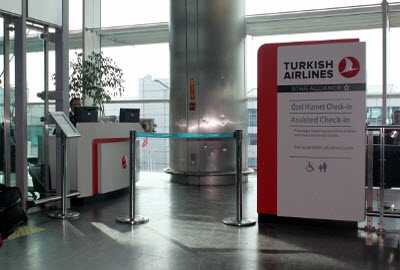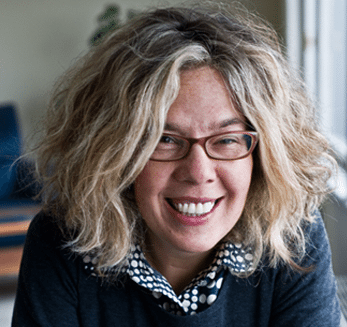ANTALYA, Turkey—This is the year that Turkey has to become boring. If 2012 was the year of Turkey hype, the year that Turkish entrepreneurs were feted at startup conferences across Europe and venture capitalists were roaming around Istanbul looking for investments, then 2013 is the year they return to their offices, knuckle down and start to deliver.
In theory Turkey has a lot of what is needed to build a strong startup culture. In 2011, according to the Organization for Economic Cooperation and Development, the country of nearly 80 million was Europe’s sixth-largest economy. According to the International Telecommunications Union, with 35 million Internet users as of June 10, (45% of the population), it hosts Europe’s fifth-largest online population. Credit-card penetration, at some 60%, is 10% higher than the European average, and a quarter of Turkey’s people are younger than 15 years old. Turkish Internet users are big users of social media; they are Europe’s third-heaviest consumers of Facebook FB +0.74% .

Markafoni’s CEO says the Turkish ecosystem is unbalanced due to the success of the e-commerce sector. Here, a photographer shooting a model wearing a new fashion dress at the Markafoni headquarters in Istanbul last year.
But as it stands, the Turkish ecosystem is unbalanced. “If you compare Turkey to any other country, the concentration of e-commerce in the ecosystem is ridiculously high,” said Sina Afra, CEO of Turkish private sales site Markafoni.
This, says Mr. Afra, is due to the success in this sector. “All of the role models have come from e-commerce.”
EBay EBAY -1.10% bought into Turkey’s largest auction site, GittiGidiyor, which translates as ‘going-going-gone’. Amazon has bought into online flower seller Ciceksepeti and the South African media giant Naspers bought into Mr. Afra’s company. These exits caused people to rush into the sector, said Dilek Dayinlarli, vice president at Istanbul-based venture capital firm 212. She is critical of a lot of the new management skills she sees in these companies.
“Many of the people we see don’t know how to use data. In e-commerce, the power comes from your data. They aren’t doing A/B testing, (comparing different designs with different audiences).
“Conversion rates are really low and they are not doing very much about it. Life time value of a customer, customer acquisition costs, you need to know these things.”
More
Read updates at WSJ.com/Techeurope and follow @wsjtecheurope on Twitter.
Certainly the size of Turkey’s e-commerce market doesn’t justify the disproportionate attention it gets. According to a March 2012 Boston Consulting Group report, the online retail sector is tiny, in 2010 worth $2 billion and accounting for just 0.6% of all retail sales. BCG predicts that by 2016 it will grow to $9 billion, but still only account for 1.1% of all retail. By contrast in the U.K., online sales accounted for 13.5% ($102 billion) of all retail in 2010 and are predicted to grow to 23%, ($230 billion) by 2016.
And, says Ms. Dayinlarli, with so many rushing into the sector, the companies are all competing on price. “They created the [online] market and they are killing it—they are working on really tiny margins.”
But it isn’t just the entrepreneurs who need to adapt, says Ali Dagli, a director at the technology investment bank GP Bullhound. The investors are likewise having to change.
“The mentality in Turkey was they had to own a majority stake at the outset. But it is changing. First it was owning 100%, then it was 51%. But entrepreneurs in Turkey don’t just need money, they need smart money, they need minority investors who can help build great companies. So that 51% has become 20% and you have smart investors guiding these guys.”
All of which, says Mr. Dagli, points to the growing maturity of Turkey’s ecosystem. And this is why Turkey has to become a bit boring “before it gets really exciting.”
This isn’t a message lost on Turkey’s startups. Asil Kurul, who works in the Turkey office of Endeavor Global, an organization aimed at promoting entrepreneurship, says things are changing. “Entrepreneurs have changed their tone—they are becoming a lot more cautious. Everyone was aware that people were going into the cloning business blindsided, but everyone now recognizes that this is a lot harder than you think.”
And while many are critical of Turkey’s dependence on e-commerce clones, Ali Karabey, founder of 212, is quick to defend them, saying they help build the market, help consumers get used to buying online, and help entrepreneurs learn how to build companies. “I’m having a hard time grasping people’s obsession with pointing at clones and why their existence is of such concern.
“Think about Markafoni—a ‘clone’ in every aspect yet it is one of the top global players in its segment, as it was not the idea but the way the team executed leaving other cloners behind.”
So what next for Turkey? Everyone agrees on one thing. Turkish entrepreneurs need to start to deliver. The lack of investment activity is a symptom, says Mr. Afra, of the lack of companies able to take investment by international venture capital firms. “There are few opportunities to invest; they [the VCs] will have to wait for the ecosystem to grow.”
At the Startup Turkey conference held in this Mediterranean resort town the hoopla was a strong undercurrent to the annual conference: We need less talking and more action. “Every country needs a national champion,” the conference was told. “Finland has Rovio [makers of Angry Birds], Sweden has Spotify. But where is Turkey’s?”
via Time for Turkey to Realize Potential – WSJ.com.





